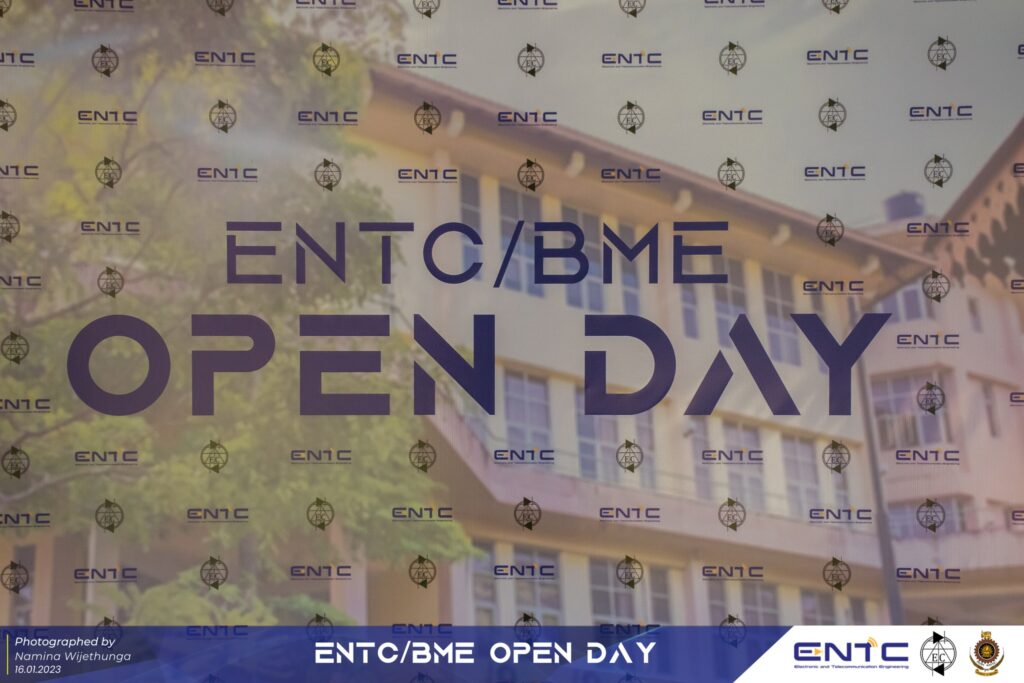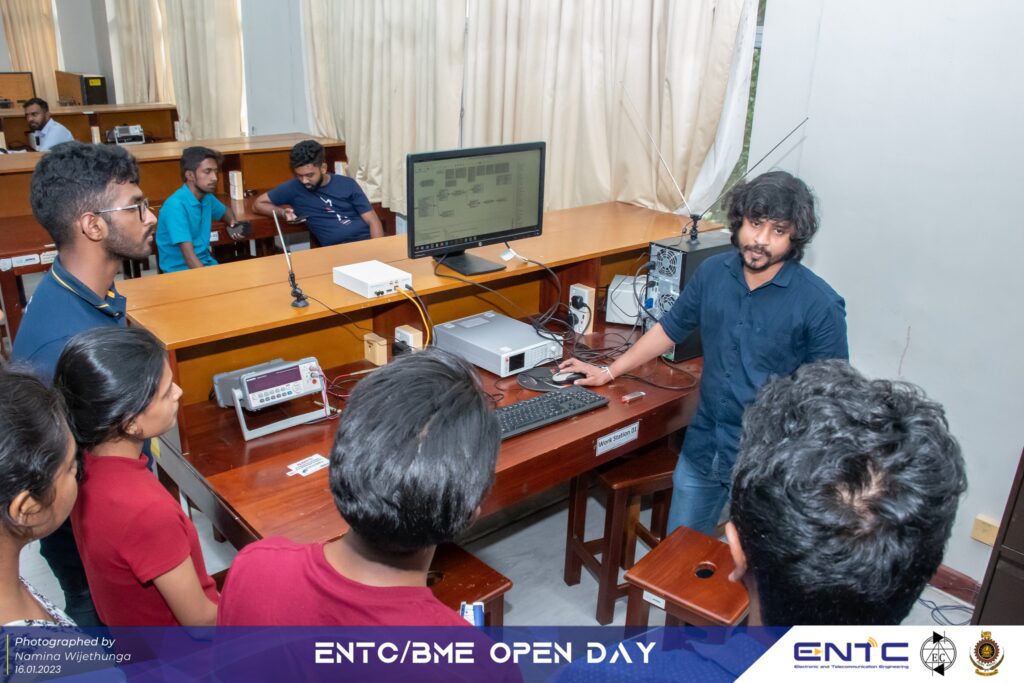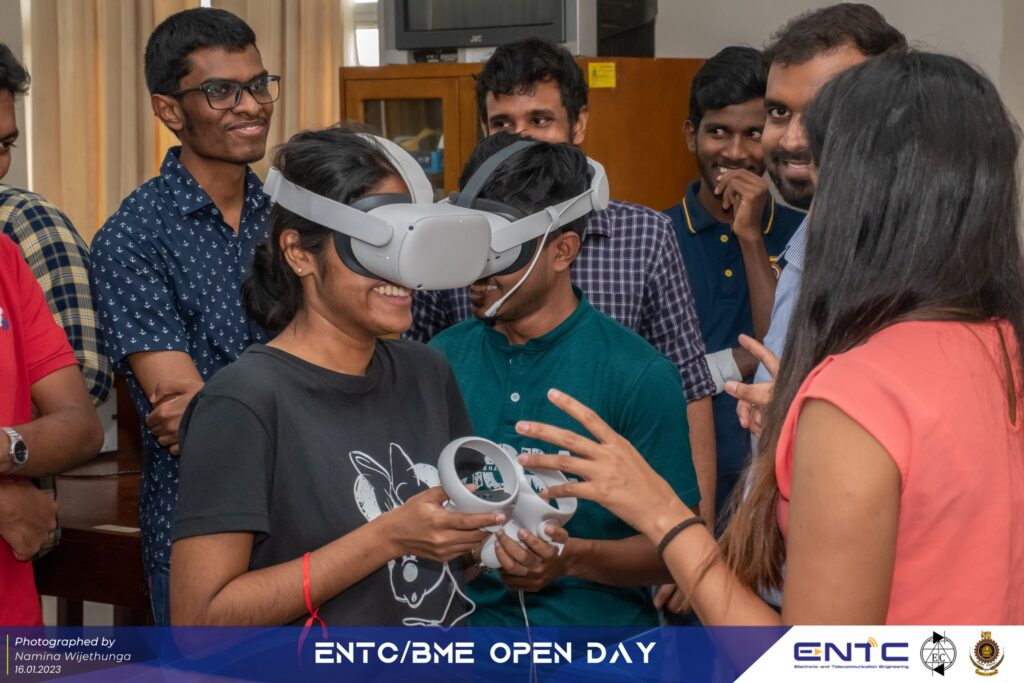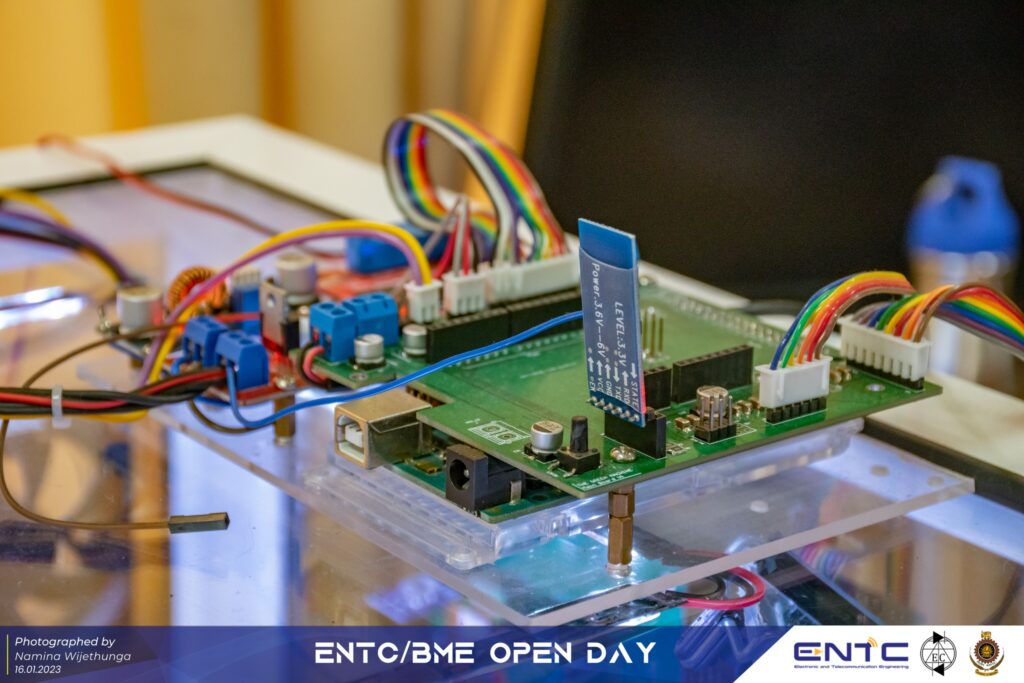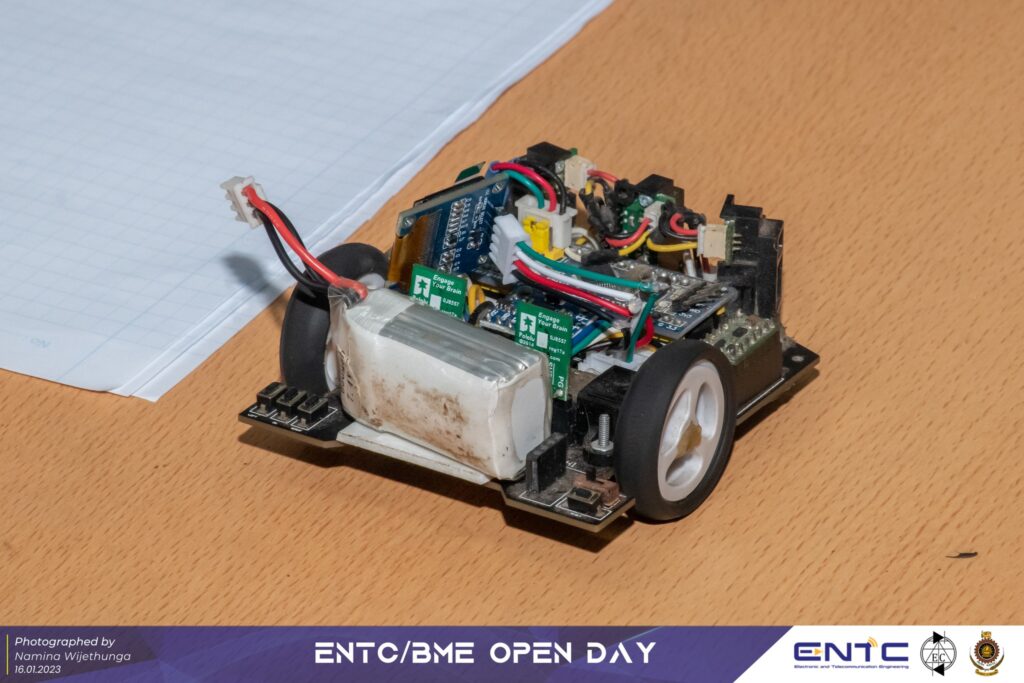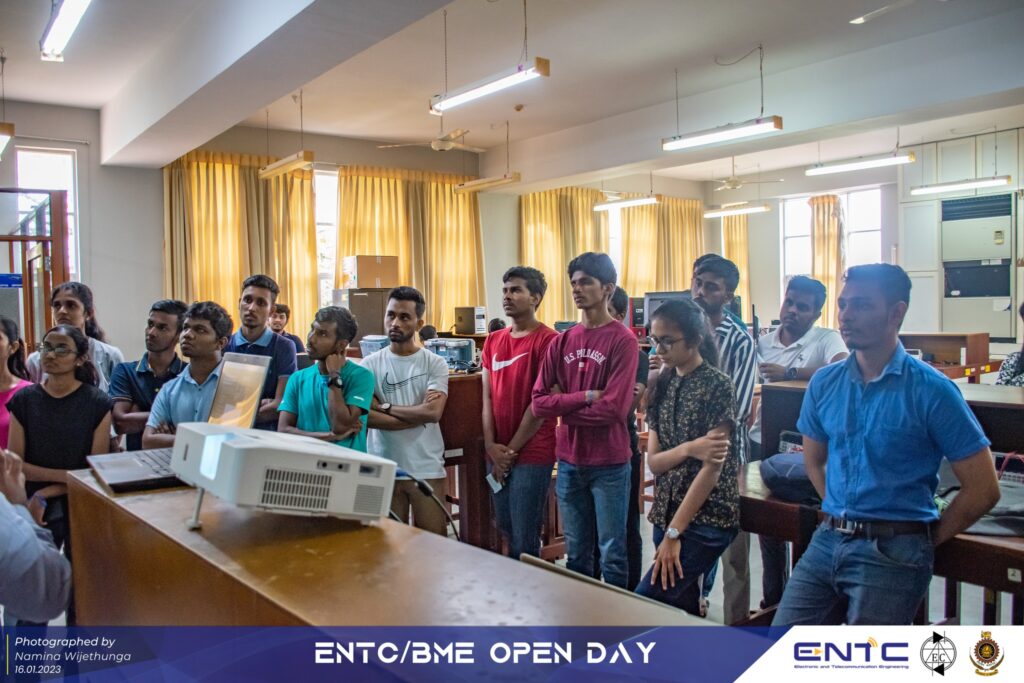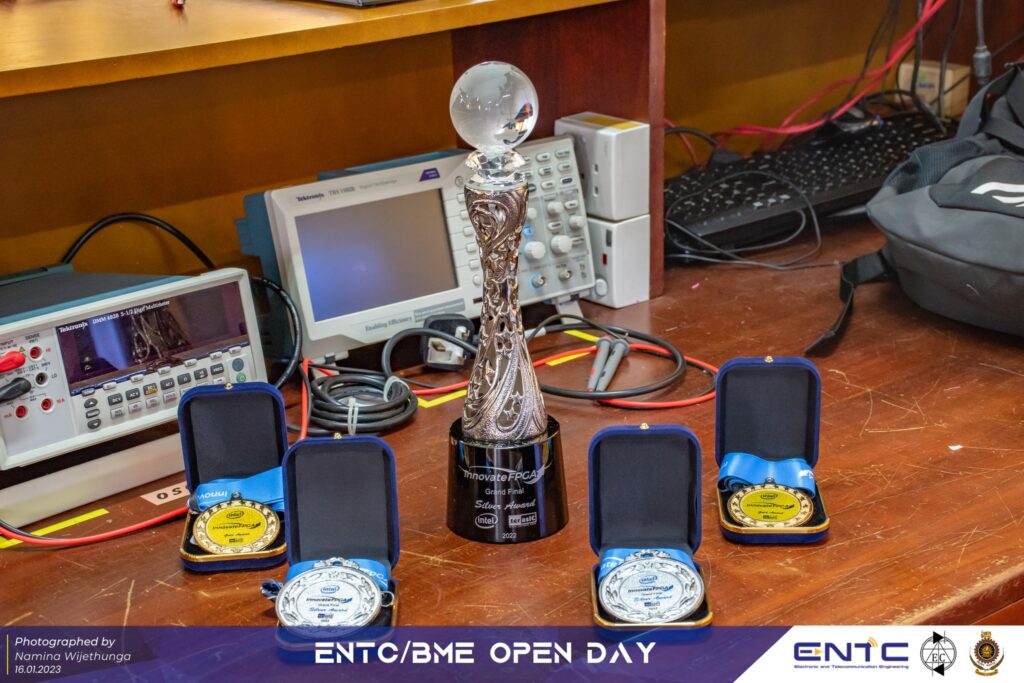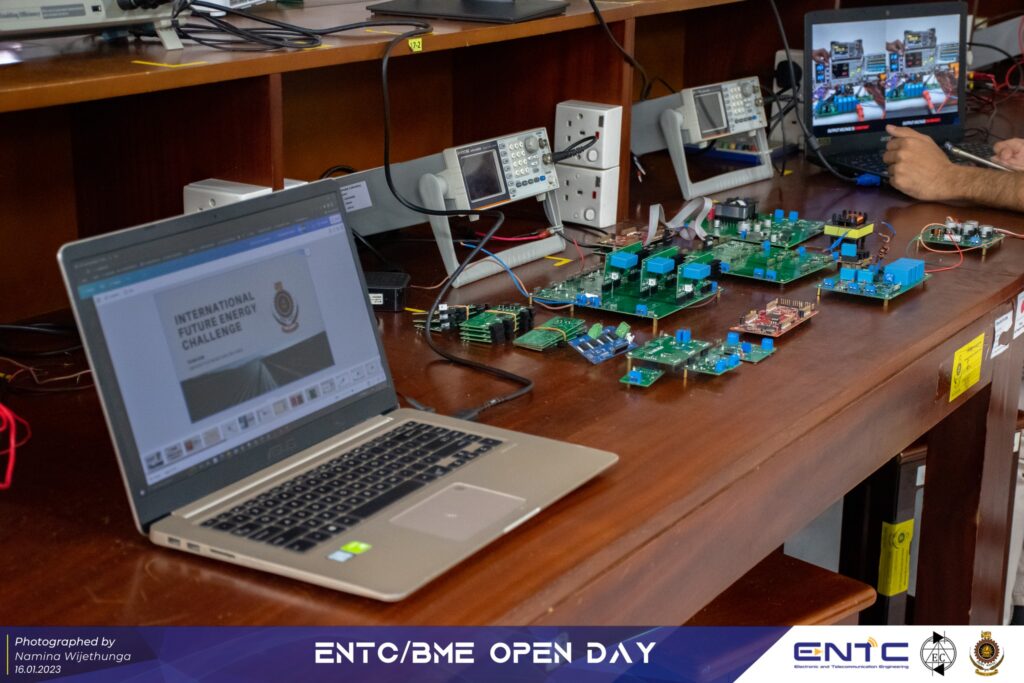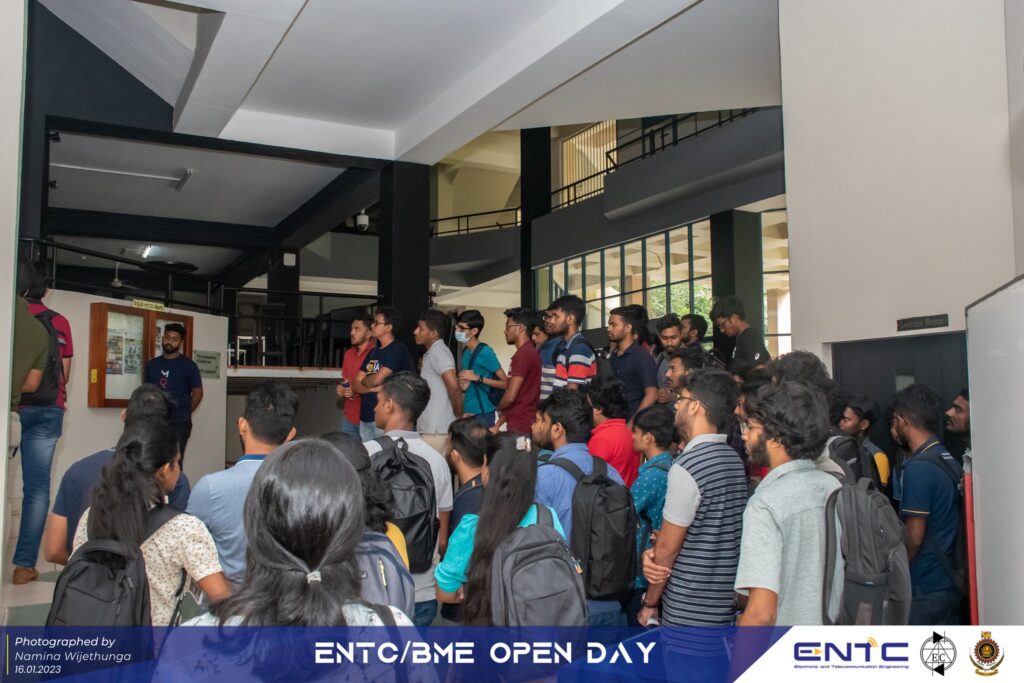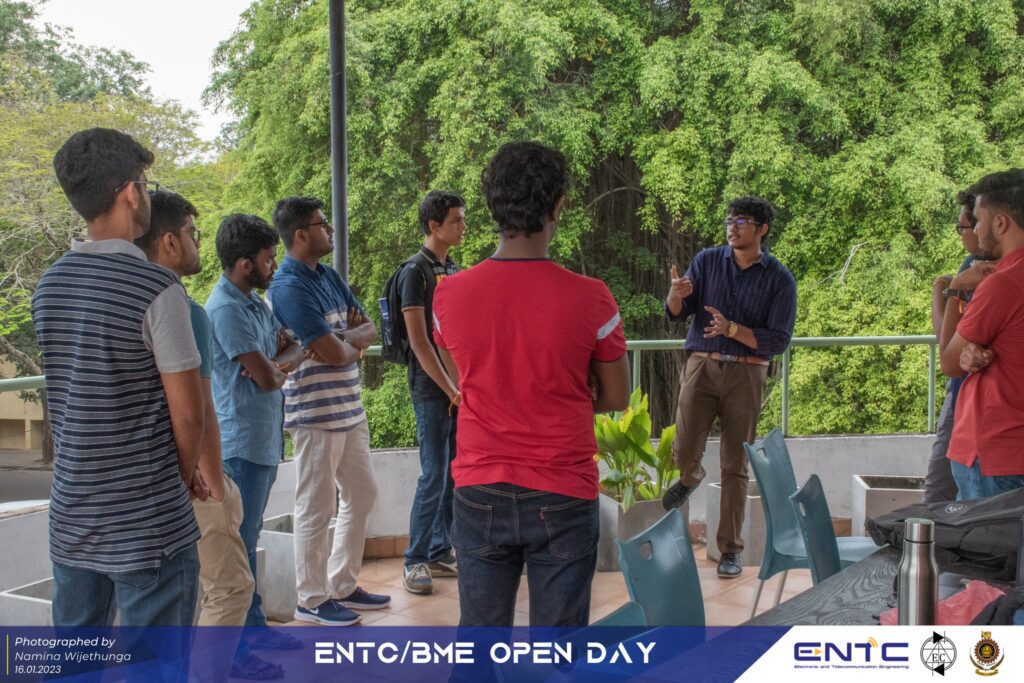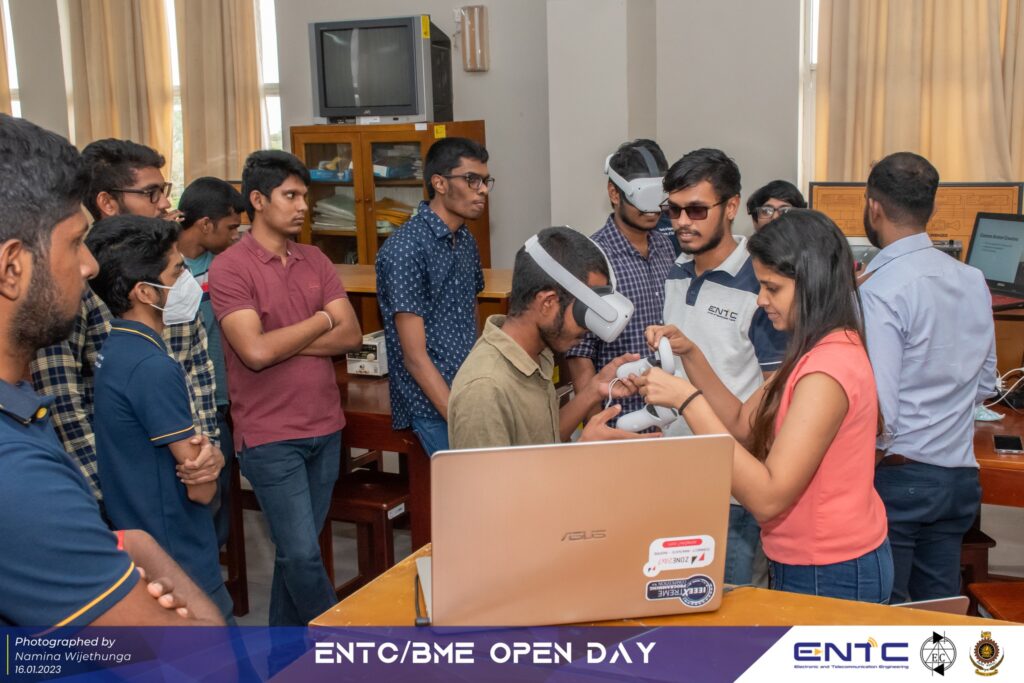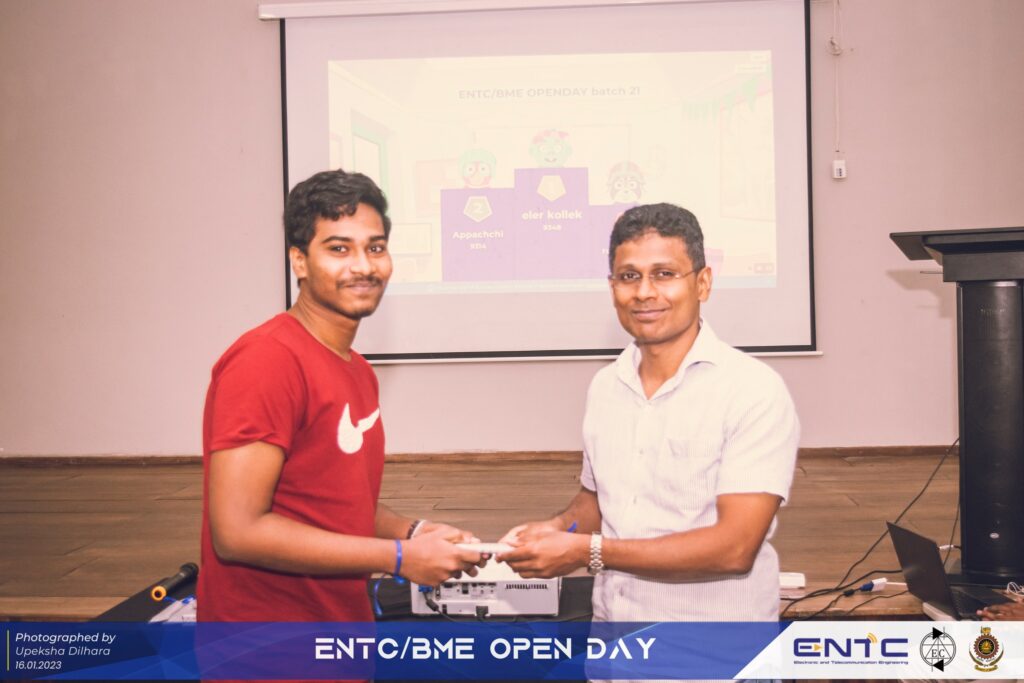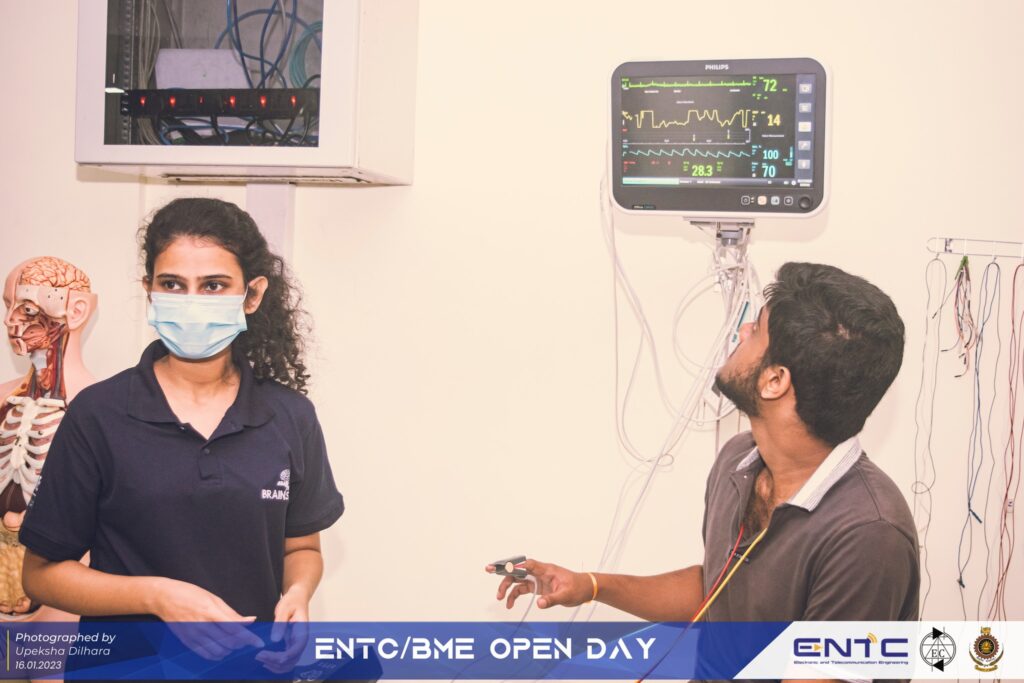A Final-Year Group-Led Research on a Dry-Contact EEG Monitoring System Accepted for Publication in Prestigious IEEE TBME
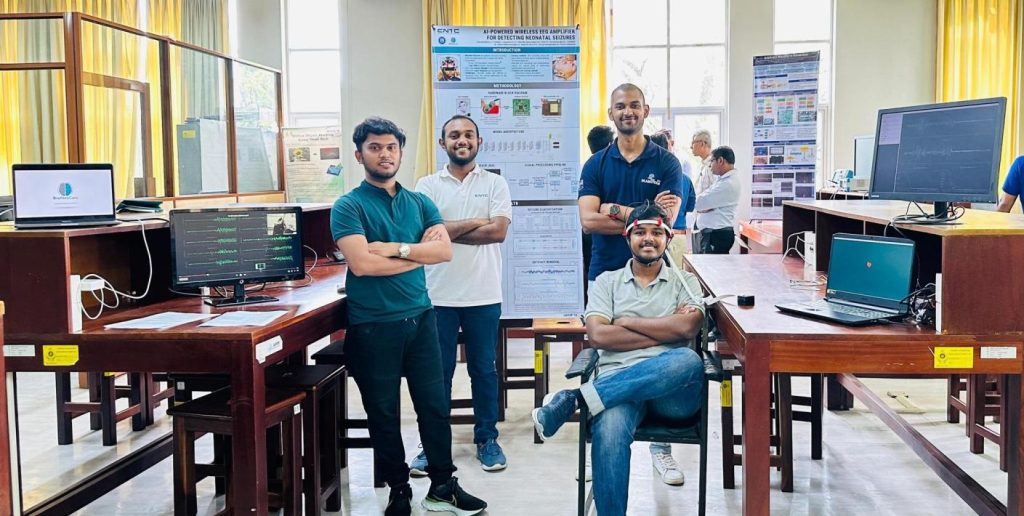
A paper authored by Nima Wickramasinghe, Dinuka Sandun Udayantha, Akila Abeyratne, and Kavindu Weerasinghe, co-supervised by Dr. Chamira U. S. Edussooriya, Dr. Anjula De Silva, Prof. Jithangi Wanigasinghe, and Kithmin Wickremasinghe, has been accepted for publication in the prestigious IEEE Transactions on Biomedical Engineering (TBME).
The research, titled “An Active Dry-Contact Continuous EEG Monitoring System for Seizure Detection Applications in Clinical Neurophysiology,” details a novel approach towards developing a cost-effective and user-friendly continuous EEG monitoring system for seizure detection in representative clinical settings. This work is significant for its attempt to address a long-standing need for comfortable and reliable EEG monitoring systems, potentially improving patient care and extending to young children.
It began as a final-year project at the Department of Electronic and Telecommunication Engineering (ENTC) by a team of biomedical engineering undergraduates. This achievement highlights the calibre of biomedical research conducted by our students and faculty, demonstrating the department’s modest commitment to advancing wearable technology and personalized medicine. This publication in IEEE TBME, a top-tier Q1 journal ranked among the top 10 in the field, is a significant accomplishment for the university in advancing biomedical research.
The computational resources used in the project were funded by the Accelerating Higher Education Expansion and Development (AHEAD) Operation of the Ministry of Higher Education of Sri Lanka, sponsored by the World Bank. A special thanks is conveyed to the staff and technicians from Lady Ridgeway Hospital for Children, Sri Lanka, for facilitating the patient experiments. This publication was further financially supported in part by the Senate Research Committee, University of Moratuwa.
Link to paper: https://ieeexplore.ieee.org/document/11230808
ENTC Wins Manamperi Main Award 2025 for the Best Inter-University Final Year Undergraduate Project in Engineering
A Final Year Research Project from the 2020 Batch of the Department of Electronic and Telecommunication Engineering (ENTC), University of Moratuwa, has been awarded the Manamperi Main Award 2025 for the Best Inter-University Final Year Undergraduate Project in Engineering.
The research project, titled “A Screening Tool for Cardiovascular Disease Management in Resource-Constrained Environments,” was carried out by a team comprising three students from the Biomedical Engineering specialization: Avishka Herath, Malith Jayalath, Sanjana Kapukotuwa, and one student from the Electronic and Telecommunication specialization: Kumudu Kaushalya, under the supervision of Dr. Chamira Edussooriya and Dr. Wageesha Manamperi.
The project focuses on the development of a low-cost, intelligent cardiac screening device that can record and analyze heart sounds (phonocardiograms) and ECG signals simultaneously to assist doctors in the early detection of cardiovascular abnormalities. Designed specifically for use in resource-limited healthcare settings, the device serves as an intermediate diagnostic tool between traditional stethoscope examinations and echocardiography, aiming to support clinical decision-making.
This prestigious national recognition highlights the team and department’s commitment to innovation in biomedical instrumentation and its potential impact on improving accessible and affordable healthcare technologies in Sri Lanka and beyond.
The team extends their heartfelt gratitude to their co-supervisor, Mr. Kithmin Wickremasinghe, for his continuous guidance and support, and to Mr. Pahan Mendis and Ms. Chathuni Wijegunawardena from Voex Technologies for their valuable mentorship throughout the project. The team also wishes to express sincere appreciation to Voex Technologies for funding the project. Special thanks are also extended to Dr. Duminda Samarasinghe, Consultant Paediatric Cardiologist at the Lady Ridgeway Hospital for Children, for his invaluable medical guidance, expert insights, and support in facilitating the clinical aspects of the research.


The “Manamperi Award” is awarded by the Sri Lanka Association for the Advancement of Science (SLAAS) each year for the Most Outstanding Undergraduate Engineering Research Project. It is open to all Engineering graduates who have graduated from a recognized university in Sri Lanka and completed a Final Year Research Project (Individual or Group) within the duration of the year this award is presented.
Read More𝗖𝗲𝗹𝗲𝗯𝗿𝗮𝘁𝗶𝗻𝗴 𝗜𝗻𝗻𝗼𝘃𝗮𝘁𝗶𝗼𝗻 𝗮𝘁 𝗦𝗣𝗔𝗥𝗞 𝟮𝟬𝟮𝟱
On Saturday, August 2nd, we witnessed an incredible showcase of student ingenuity at the SPARK Challenge, held in Colombo.
This event brought together some of the brightest young innovators tackling real-world challenges through sustainable and scalable engineering solutions. We are proud to announce this year’s winners:
Champions – Team Zypher
Project: BSFix – A Revolutionary Black Soldier Fly (BSF) Farming Unit
Led by Demitha Manawadu, Team Zypher introduced a compact, odor-controlled, and scalable BSF system to convert organic waste into animal feed and compost. Their solution combats methane emissions, supports SDG 13 (Climate Action), and promotes circular economy practices.
1st Runners-Up – Team Dyson Sphere
Project: SEIAN – Smart Energy Integration and Automation Network
Led by Rusula Oshadha Pathirana, this team designed an intelligent, fault-tolerant inverter system that maintains grid stability during outages and supports the growth of decentralized renewable energy systems.
2nd Runners-Up – Team Rysera
Project: URO MONITOR – Smart Urine Output Monitoring System
Led by Sahan Cooray, Team Rysera developed an IoT-enabled medical device to automate urine output tracking in ICUs and dengue wards—boosting accuracy, reducing nurse workload, and improving patient care in Sri Lanka’s hospitals.
Congratulations to all the winning teams for your innovation, teamwork, and commitment to engineering solutions that matter. The SPARK Challenge continues to be a launchpad for real impact!
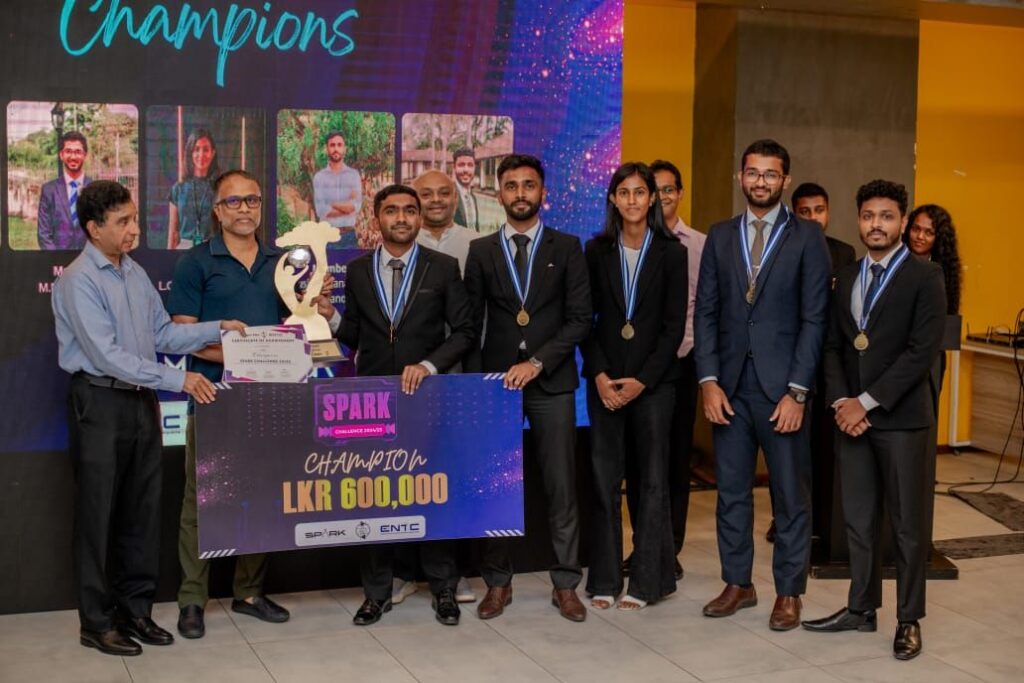
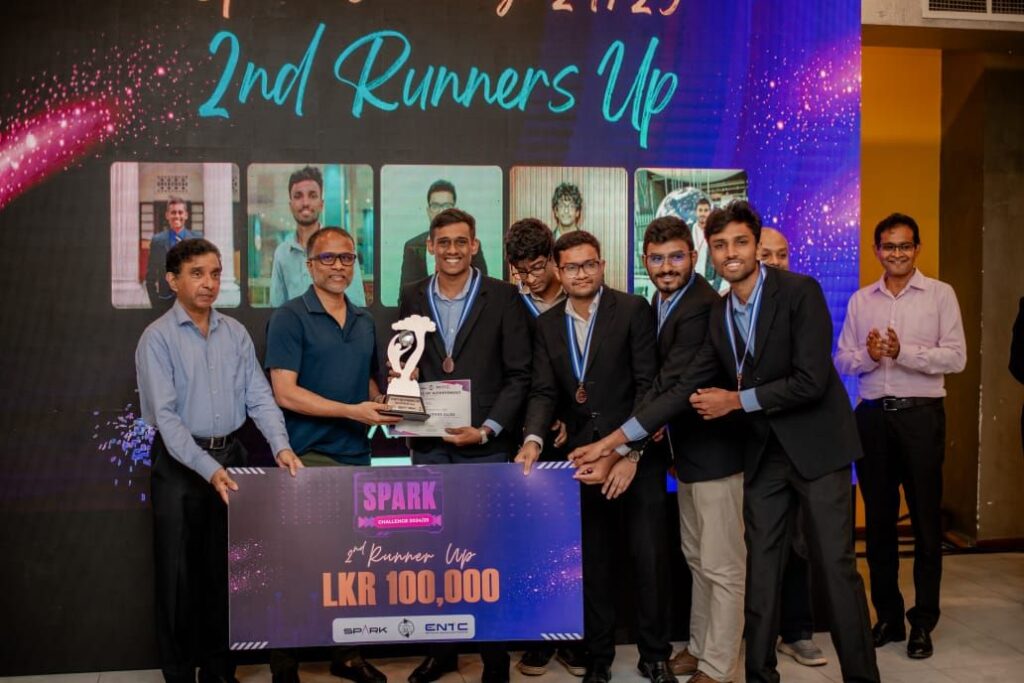
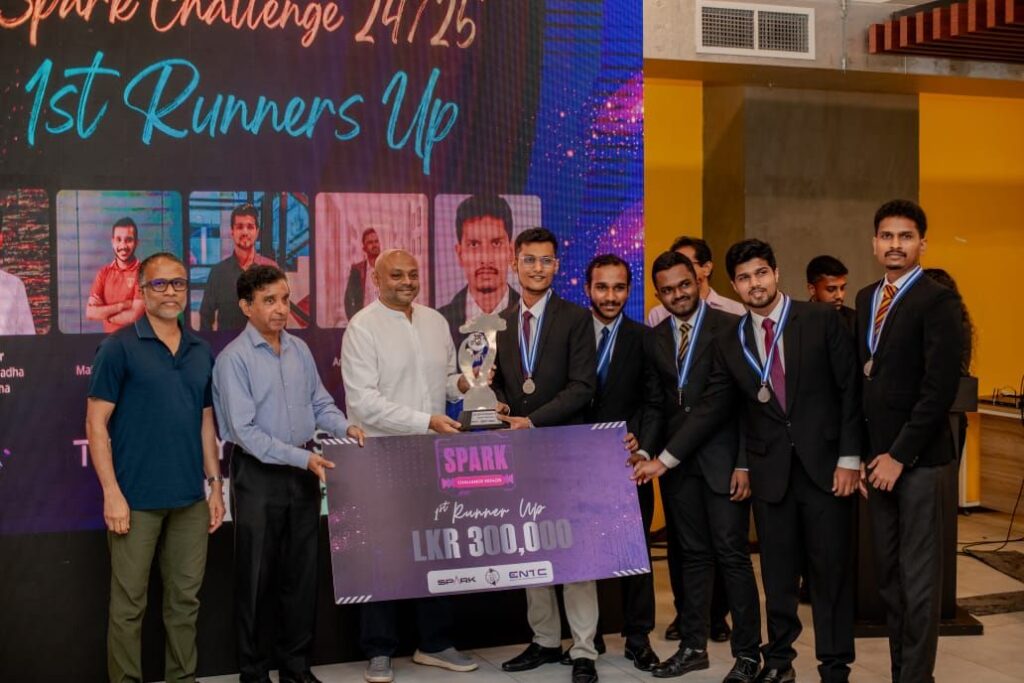
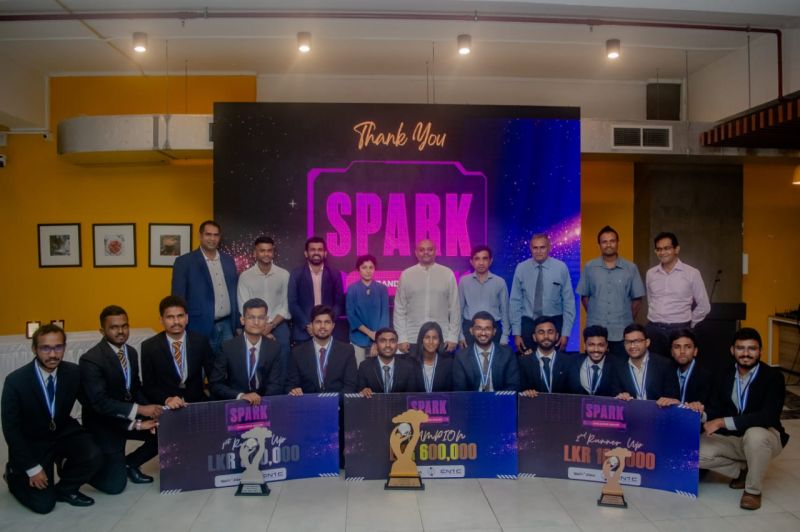
ENTC Team Wins the RISC-V based Design & Verification Challenge at DVCon
Team BitWeavers from the Department of Electronic and Telecommunication Engineering of the University of Moratuwa was able to become the winner of the global design contest “C-DAC’s VEGA microprocessor (RISC-V) based Design & Verification Challenge” organized by the DVCon India 2024 Design and Verification Conference. The team consists of Supun Dasantha Kuruppu, Anuki Pasqual, and Dakshina Tharindu from the Department of Electronic and Telecommunication Engineering.
This contest for university students aimed to encourage innovation in digital system design and verification. Over the span of 5 months, the teams were required to design, verify, and implement a custom AI accelerator to accelerate a vision transformer model for a malware detection application. The accelerator would then be interfaced with the VEGA AS1061 CPU indigenously developed by C-DAC (Center for Development of Advanced Computing, India) and implemented on a Genesys 2 FPGA board. The contest was divided into 3 stages, with 20 teams out of 120 being selected for Stage 2A and 9 teams being selected for Stage 2B.
Team BitWeavers comprising Anuki Pasqual, Dakshina Tharindu, and Supun Kuruppu was able to successfully implement and run the full system and achieve an overall 3x reduction in inference latency compared to the pure CPU execution, surpassing the performance of all other teams. They were the only team from Sri Lanka to reach the top 3 and were given the opportunity to attend the DVCon India 2024 conference held in Bangalore, India on the 18th and 19th of September 2024 and demonstrate their accelerator. They received praise from both the organizing committee and the audience for their impressive performance.
The Department of Electronic and Telecommunication Engineering has always been a pioneer in electronics innovation in Sri Lanka. The team attributed their success to the comprehensive digital system design pathway taught at the department, which gave them the theoretical and practical knowledge that was instrumental in successfully building the accelerator.
The team also thanked the DVCon India team for providing a massive learning experience through this contest, assisting them in the implementation process, and giving them the opportunity to connect with experts from the industry and academia through the conference.
In 2023, ENTC became the 1st runners up.
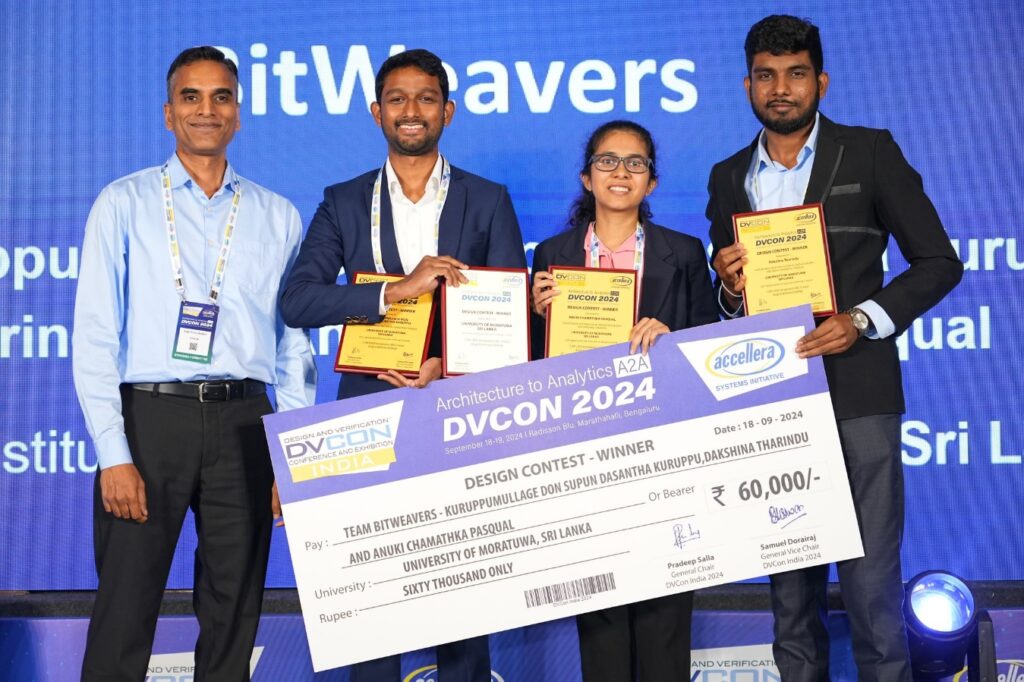
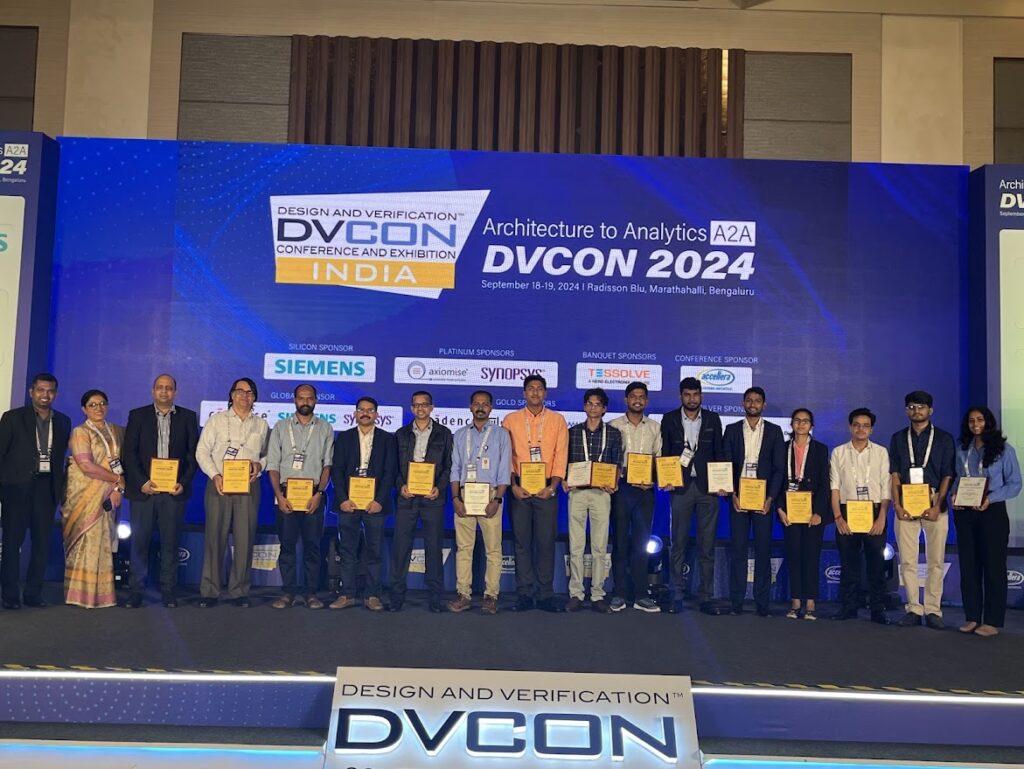
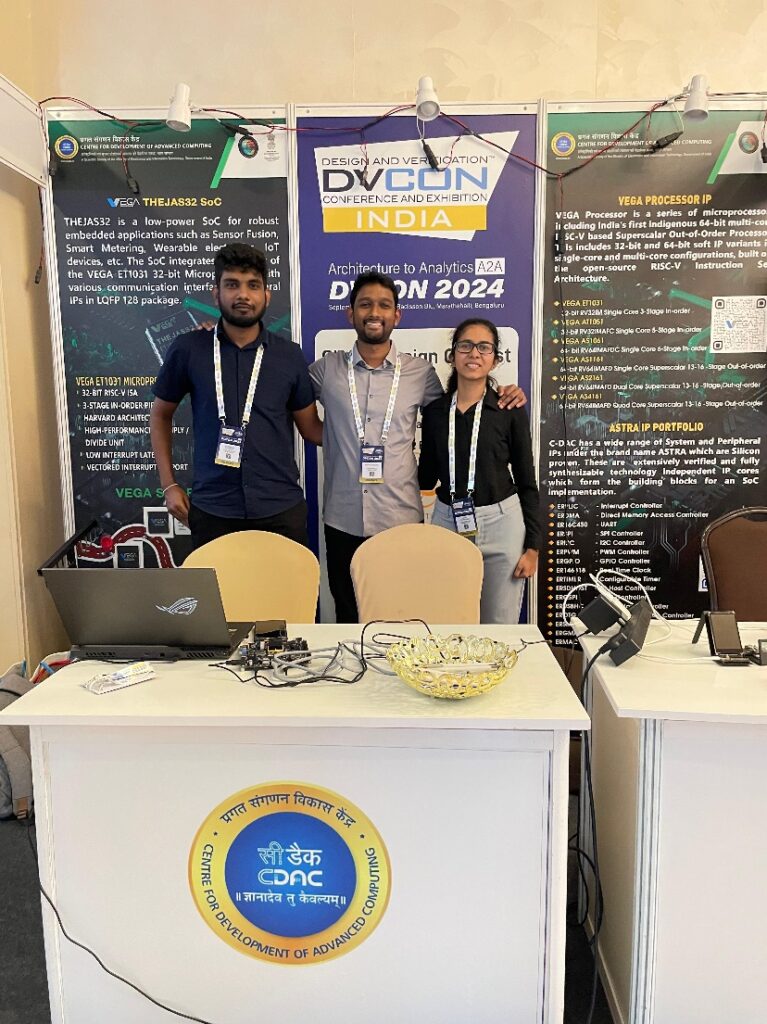
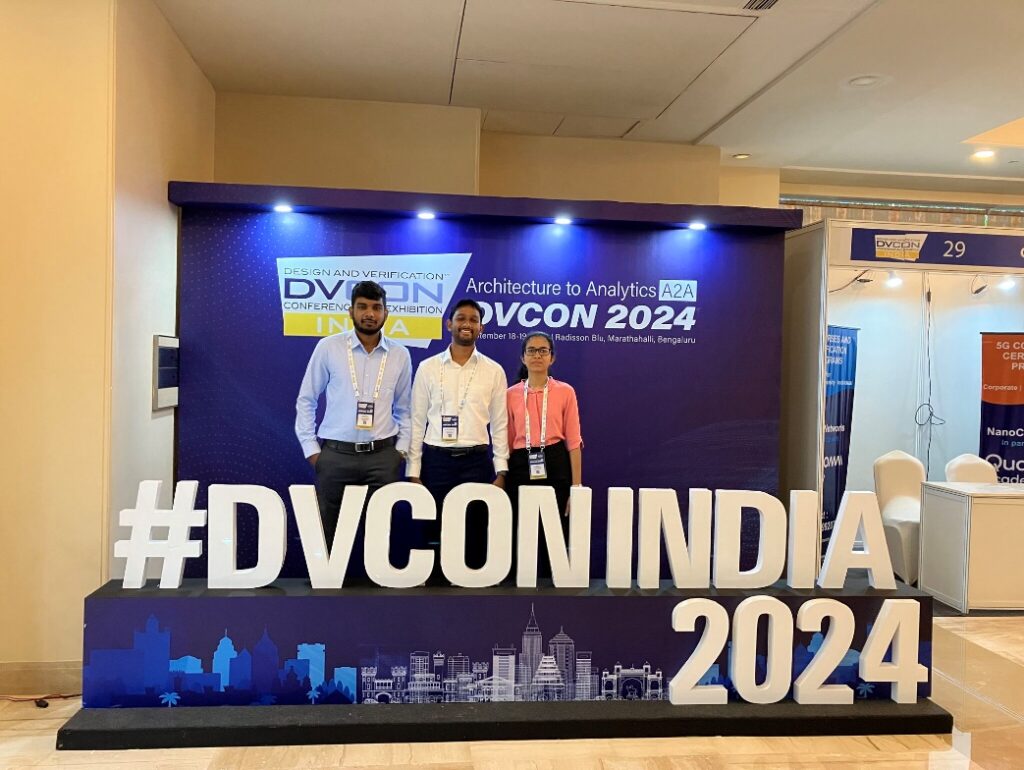
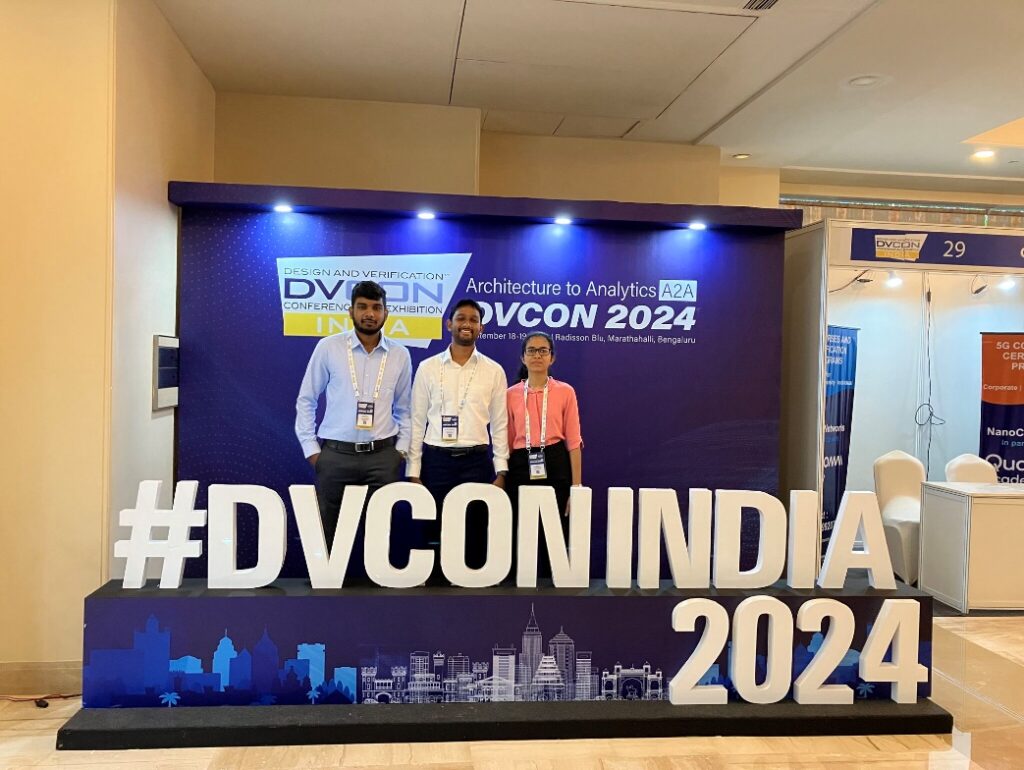
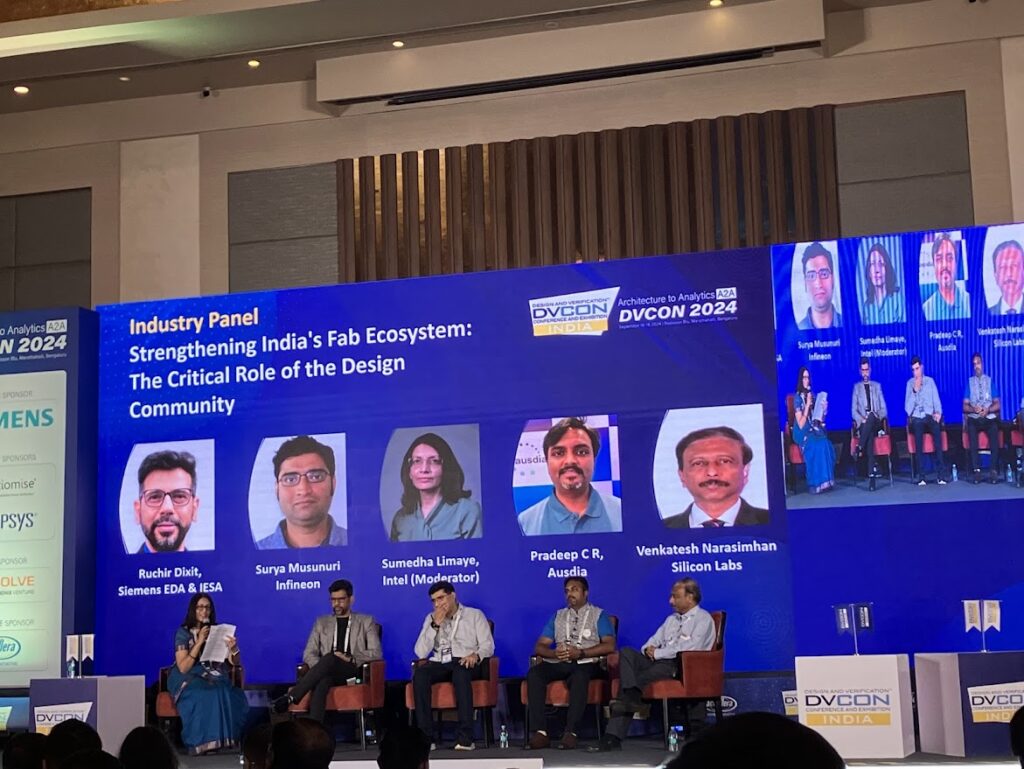
University of Moratuwa Enhances Innovation with Raspberry Pi 4 Model B Gifting
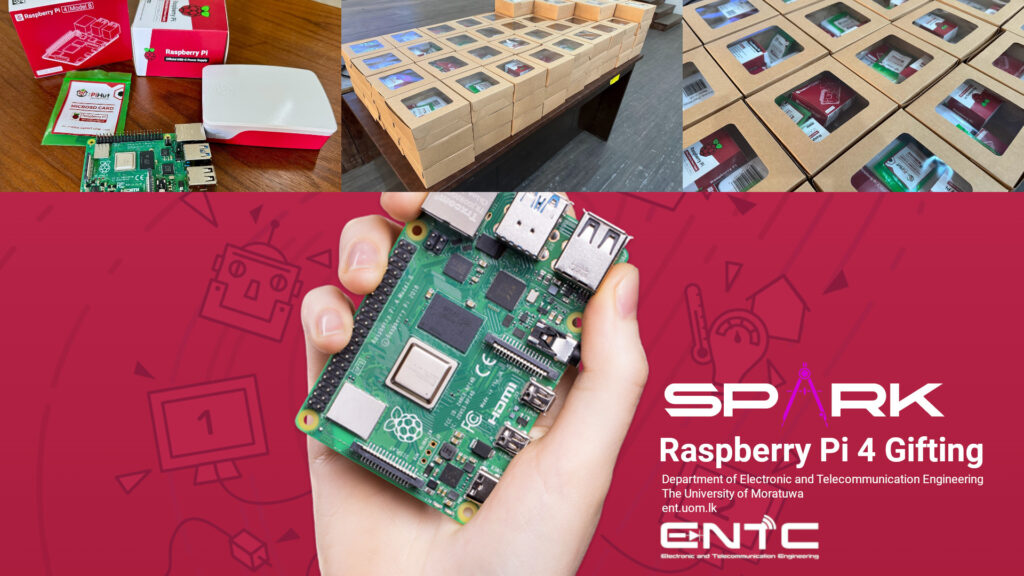
Moratuwa, Sri Lanka – March 14, 2024 – In a significant step towards fostering technological innovation and hands-on learning, the Department of Electronic and Telecommunication Engineering at the University of Moratuwa has gifted Raspberry Pi 4 Model B kits to all 115 students of the 2021 intake. This initiative is a part of the SPARK program, which aims to encourage students to engage in innovative projects and challenges.
The Raspberry Pi 4 Model B, renowned for its robust capabilities, offers students a versatile platform for a wide range of projects. Equipped with a quad-core Cortex-A72 (ARM v8) 64-bit SoC, LPDDR4-3200 SDRAM, and dual-display support at resolutions up to 4K via a pair of micro-HDMI ports, the Raspberry Pi 4 is a powerful tool for developing complex computing solutions. Its gigabit Ethernet and USB 3.0 connectivity also make it suitable for high-speed data transfer and network projects.
The head of the department, highlighted the significance of this initiative, stating, “The Raspberry Pi 4 Model B kits provide our students with the essential tools to explore, innovate, and create. These devices will not only assist them in their coursework but also inspire them to participate in the SPARK Challenge and other innovative activities.”
Innovative Projects and Real-World Applications
The Raspberry Pi has already been instrumental in several notable student projects at the university. One such project, sponsored by Dialog Axiata PLC, is the Virtual Cycling Project. Utilizing a VR headset, this project enables users to experience virtual cycling through Sri Lanka’s breathtaking mountainous routes. The Raspberry Pi served as the primary controller, showcasing its potential in virtual reality applications.
Another impressive project involved digital IC replication, where the Raspberry Pi generated patterns to train a neural network module, demonstrating its capability in advanced digital signal processing and machine learning applications.
There have been numerous such project using Pis.
The SPARK Challenge: Driving Innovation
The SPARK Challenge is a yearlong endeavor designed to encourage students to develop unique and novel products that address the adverse effects of climate change. The challenge emphasizes the creation of sustainable solutions and aims to foster the growth of new commerce and industry in Sri Lanka. Teams of five students will present their solutions to external specialists in a format reminiscent of “Shark Tank” or “Dragons’ Den.”
To support the students, the SPARK program and the department provide comprehensive training and resources, including:
– Modern Design Workshops: Eight facilitated workshops that help teams formulate and deliver strong, innovative solutions.
– Briefing Sessions on UN Sustainable Development Goals (UN-SDGs): Guidance on developing sustainable products and services.
– Agile Methodology Training: Enabling rapid iteration of software and hardware solutions.
Dr. Ajith Pasqual expressed his optimism about the program, stating, “The SPARK Challenge is a platform for our students to not only demonstrate their technical skills but also to create impactful solutions that can drive sustainable development in Sri Lanka. We are excited to see the innovative ideas that will emerge from this initiative.” Nisitha Silva, Vice President of the Electronic Club that runs the SPARK program too spoke.
Fostering Future Innovators
By providing the Raspberry Pi 4 Model B kits, the University of Moratuwa is investing in the future of its students, equipping them with the tools needed to excel in the rapidly evolving tech landscape. This initiative aligns with the university’s commitment to fostering innovation, creativity, and practical problem-solving skills among its students.
The SPARK program and the gifting of Raspberry Pi kits symbolize a forward-thinking approach to education, where students are encouraged to push the boundaries of what is possible and contribute to the technological and industrial growth of Sri Lanka.
For more information on the SPARK program and the innovative projects at the University of Moratuwa, please visit [University of Moratuwa – Department of Electronic and Telecommunication Engineering.
Read MoreENVOYAGE 2023: A Confluence of Ideas and Innovation
Colombo, Sri Lanka – October 30, 2023
ENVOYAGE 2023, an industry forum and dinner organized by the Electronic Club of the Department of Electronic and Telecommunication Engineering (ENTC) at the University of Moratuwa, unfolded with resplendence and fervor at the prestigious Galadari Hotel on Lotus Road, Colombo 01.
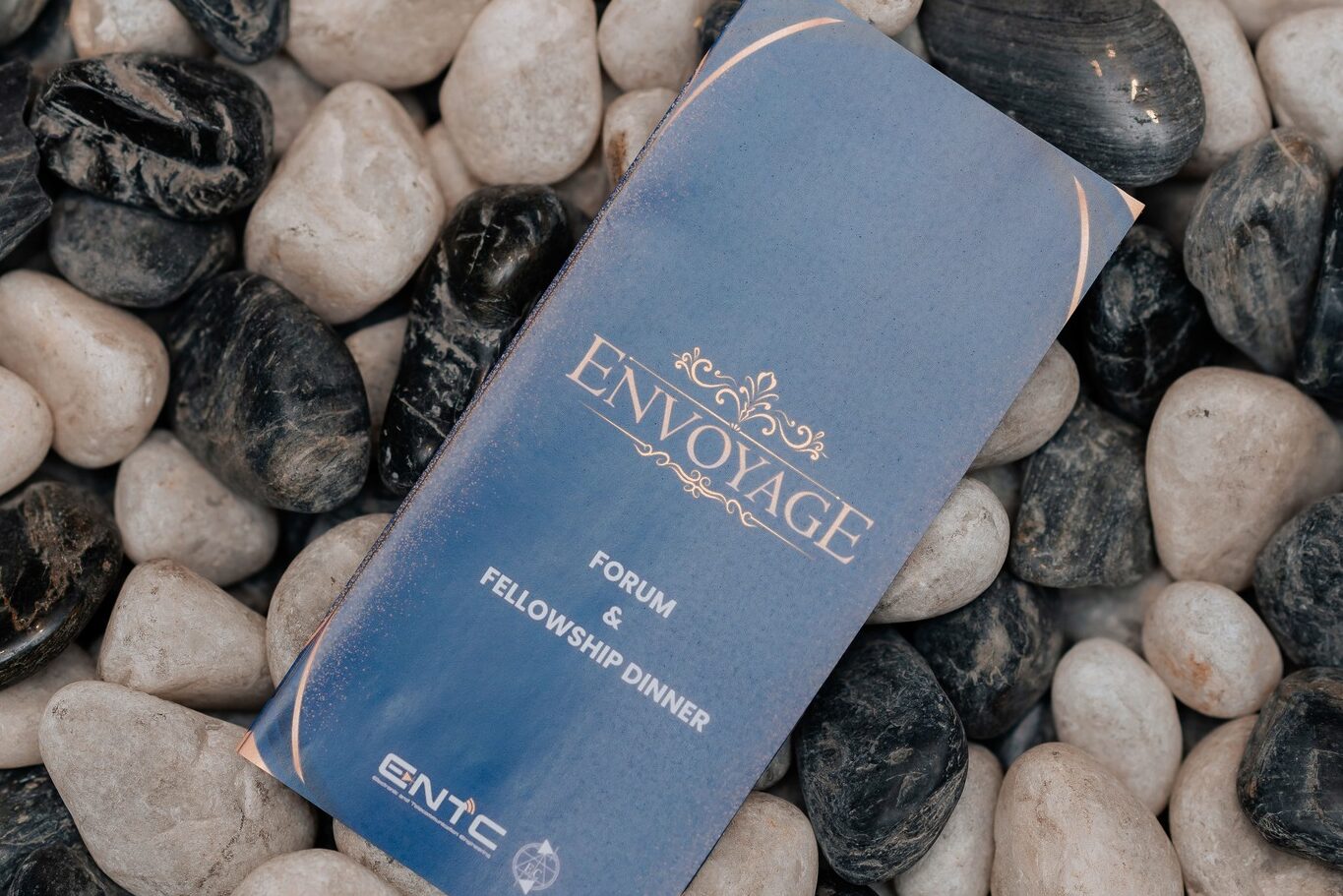
Gathering a diverse cohort of academic luminaries, ENTC alumni, industry leaders, and students, the event served as a dynamic platform for dialogue, collaboration, and insight into the future of the electronic and telecommunication industries.
Participants engaged in lively discussions, envisioning the future of electronic and telecommunication engineering. Collaboration between academia and industry was emphasized, driving innovation, and addressing challenges. For students, ENVOYAGE 2023 offered insights from industry leaders, networking opportunities, and a chance to navigate the field confidently. The event balanced academia with entertainment, fostering camaraderie through interactive sessions and cultural performances. Attendees bonded, reflecting the vibrant spirit of the ENTC community. ENVOYAGE 2023’s success highlights the department’s dedication to excellence and its role in shaping Sri Lanka’s engineering landscape. Departing participants carry renewed inspiration, committed to advancing knowledge and technology in the industry.






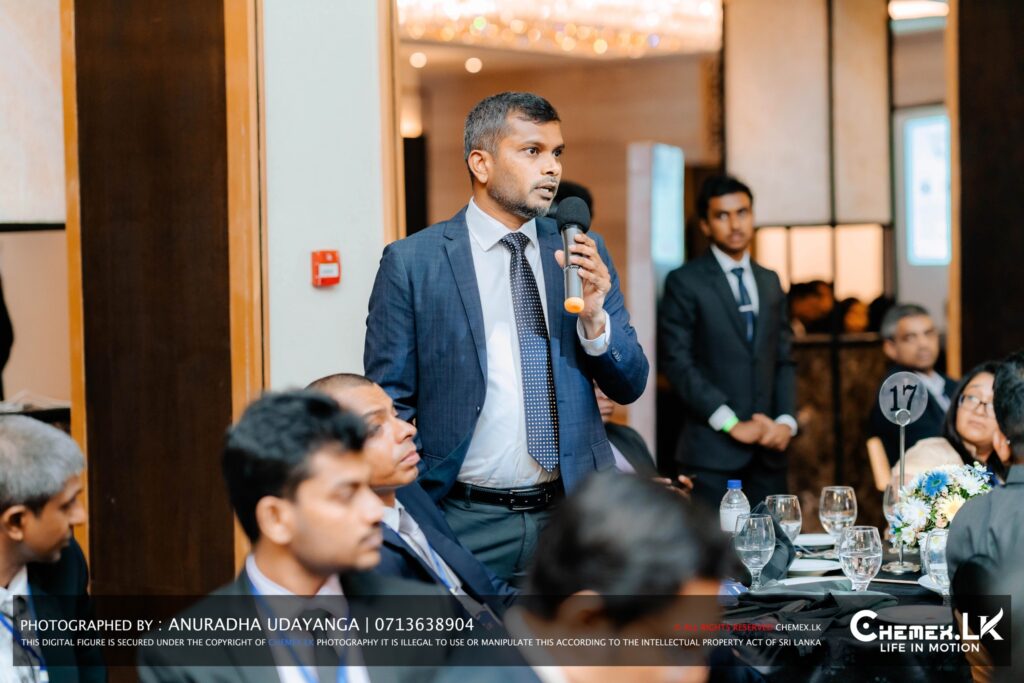
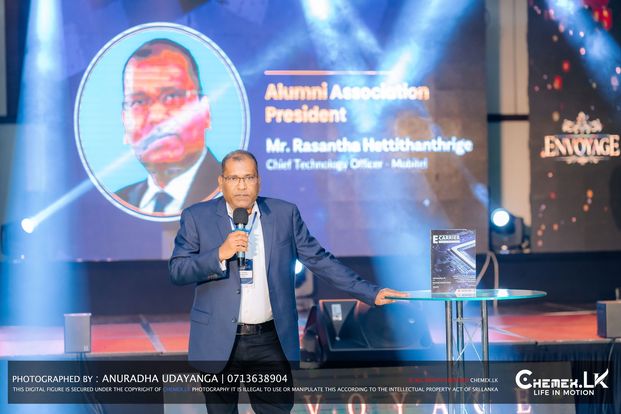
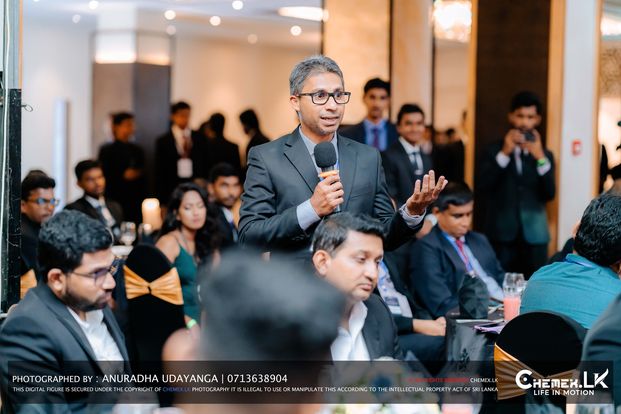
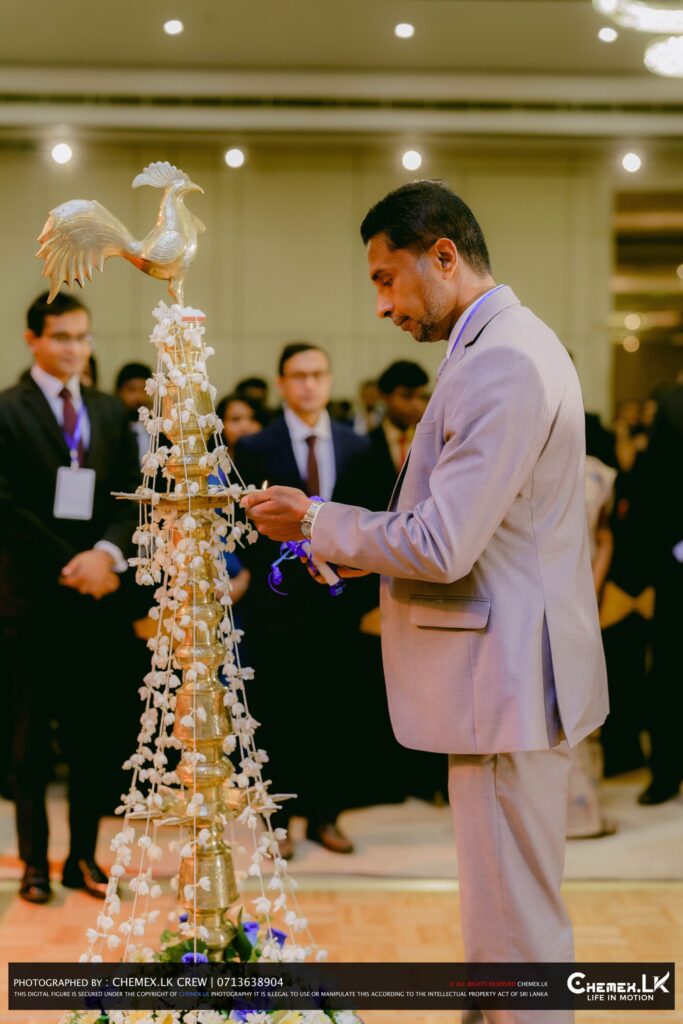
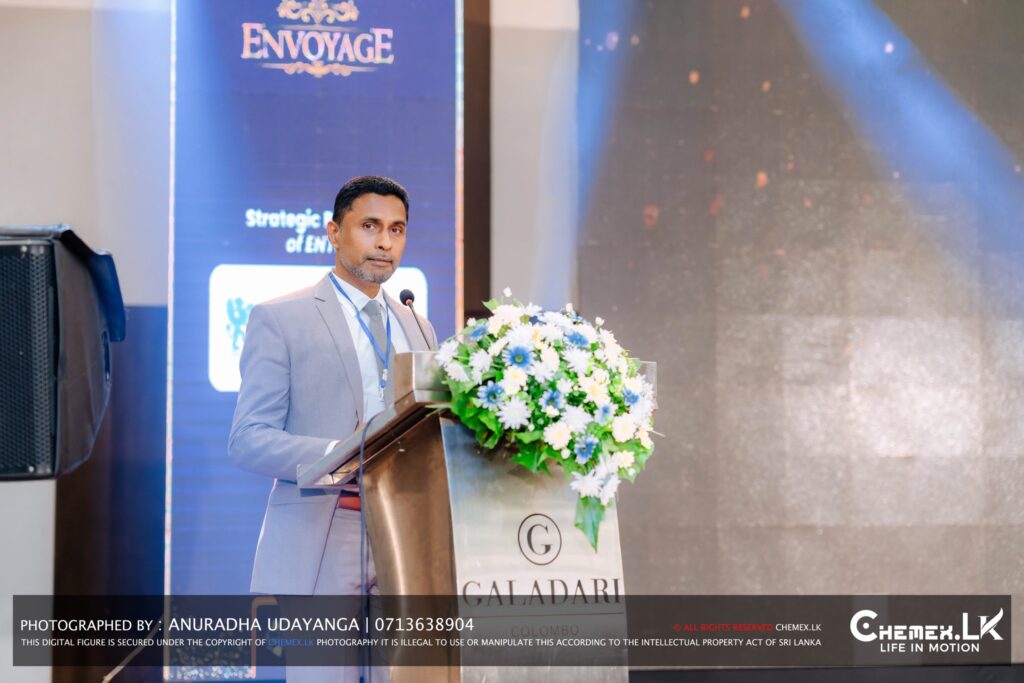
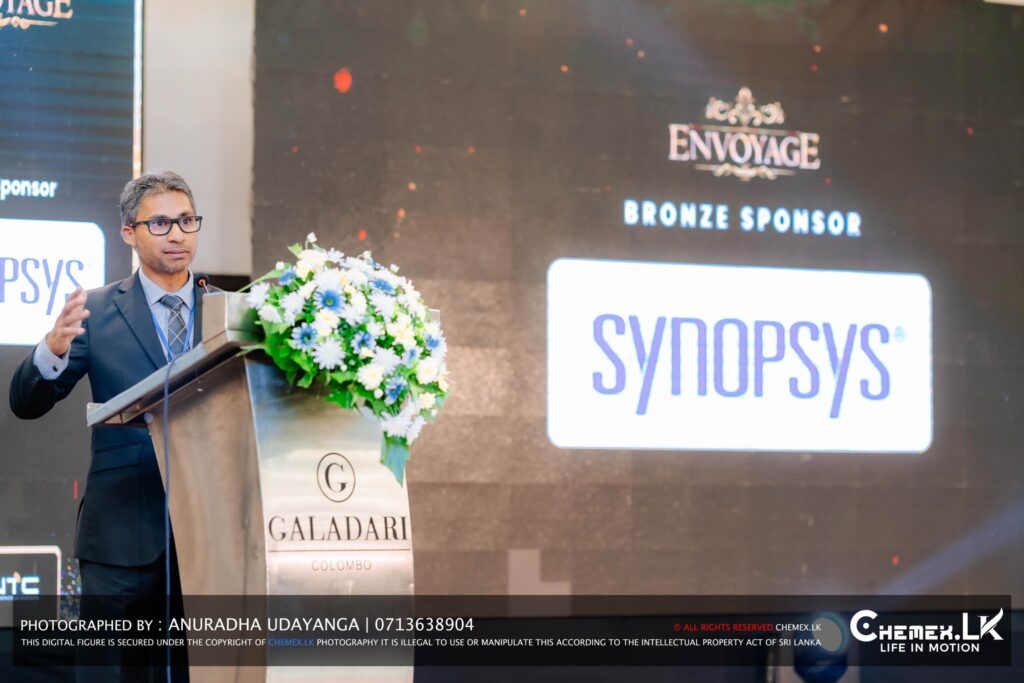
ExMo Engineering Exhibition 2023
The Faculty of Engineering at the University of Moratuwa organized the ExMo engineering exhibition from 27th to 29th July 2023. The event was a grand success, with as many as 50,000 attendees including students from other universities, school children, parents, and technology enthusiasts.
All the departments of the faculty participated in the exhibition, showcasing their innovative projects and research. The Department of Electronic and Telecommunication Engineering was one of the major attractions at the event. The exhibits included final-year projects, Spark projects, Sri Lanka Robotics Challenge (SLRC) projects, biomedical engineering projects, and other innovative endeavors.
In addition to these exhibits, ENTC hosted boot camps related to machine learning (ML), Internet of Things (IoT), and Arduino. These boot camps provided participants with in-depth knowledge and practical skills in an entertaining manner.
Attendees were taken on guided tours of Analog, Digital, Telecom, SLT-Mobitel, UAV, and Biomedical laboratories. During these tours, laboratory equipment and associated projects were showcased.
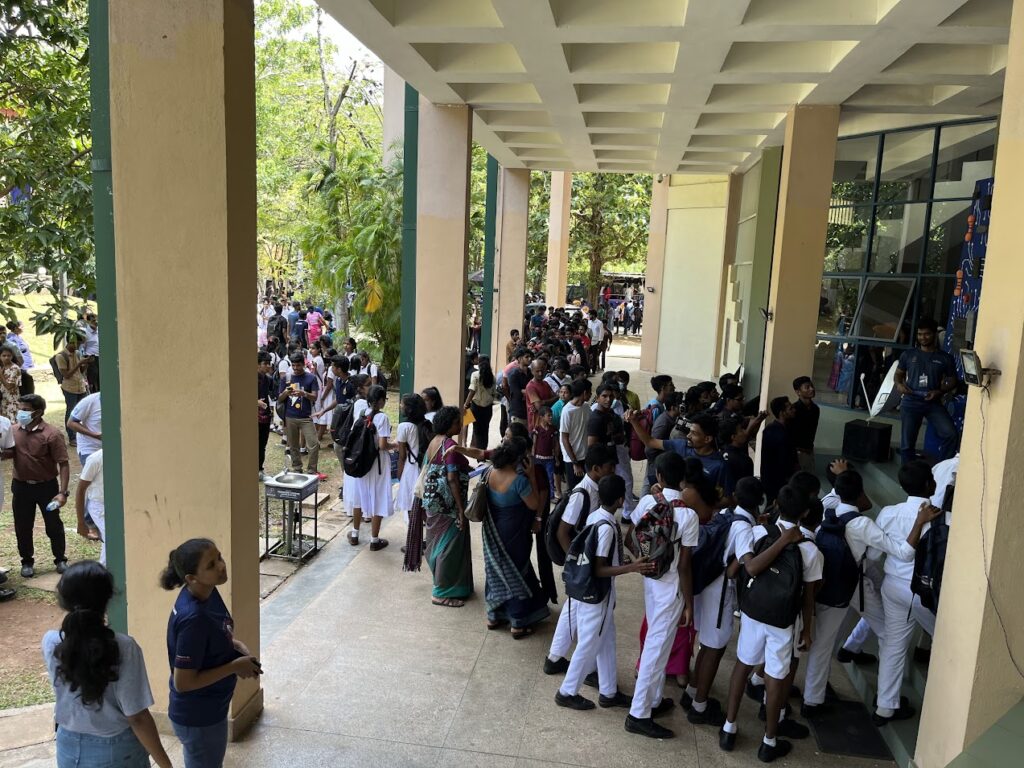
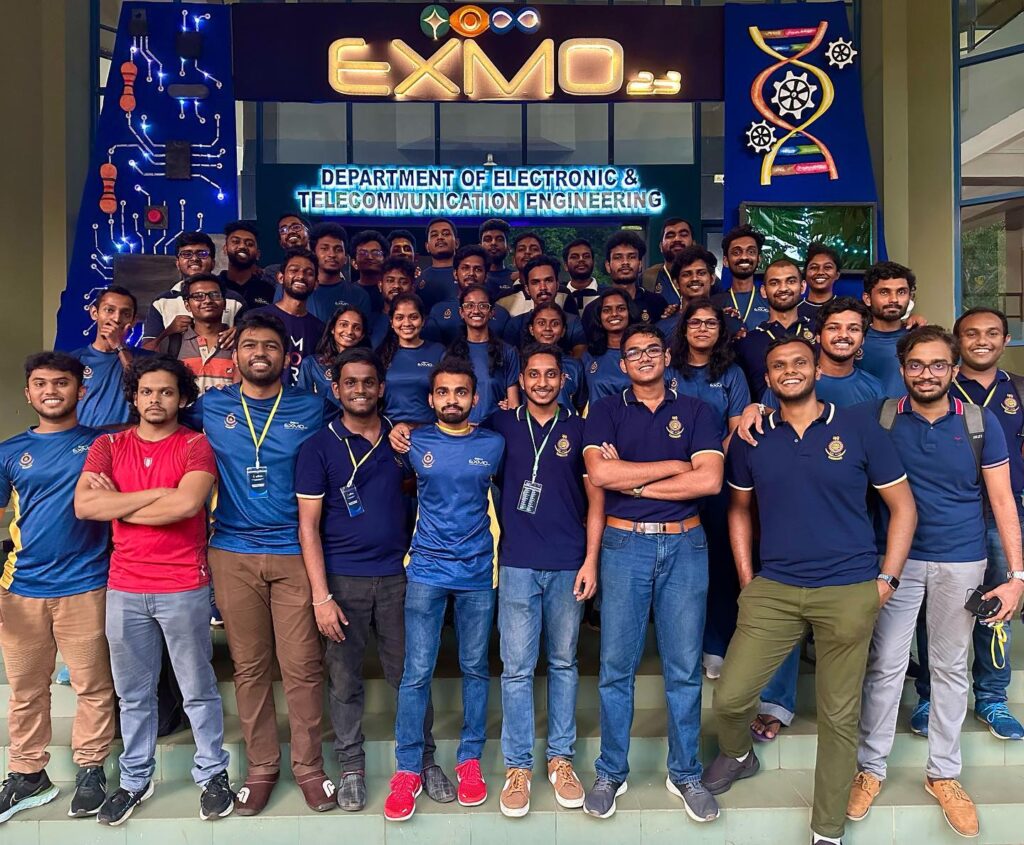
The ExMo engineering exhibition was a platform for students to showcase their technical skills and creativity in designing and building innovative projects. It was also an opportunity for technology enthusiasts to learn about the latest trends in engineering and allied disciplines. The success of the event is a testament to the quality of education and research offered by the Faculty of Engineering at the University of Moratuwa.
ENTC ExMo video is here.
Read MoreDepartment Receives a Laboratory Equipment Upgrade with Four Tektronix TBS1052 Oscilloscope
The Department of Electronic and Telecommunication Engineering of the University of Moratuwa has received a laboratory equipment upgrade with four Tektronix TBS1052 Oscilloscopes. The oscilloscopes were acquired through funding from the SPARK project, which seeks to recognize individuals and groups who devise unique, innovative, socially, and environmentally responsible solutions that foster significant positive transformations in society, industry, and the broader environment. The TBS1052 Oscilloscope is a digital storage oscilloscope that provides affordable performance in a compact design. It comes with a 7-inch WVGA TFT color display, up to 2 GS/s sampling rate, bandwidth of 50 MHz, and dual channel frequency counters.
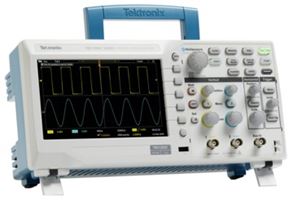
The Department of Electronic and Telecommunication Engineering has about 25 workstations each in both analog and digital electronics laboratories, enabling about 50 students to be accommodated simultaneously. Each workstation has a dual-tracking power supply, an analog multimeter, a digital multimeter, a signal generator, and a digital storage oscilloscope. The new Tektronix TBS1052 Oscilloscopes will replace old ones and support regular laboratory classes and SPARK projects.
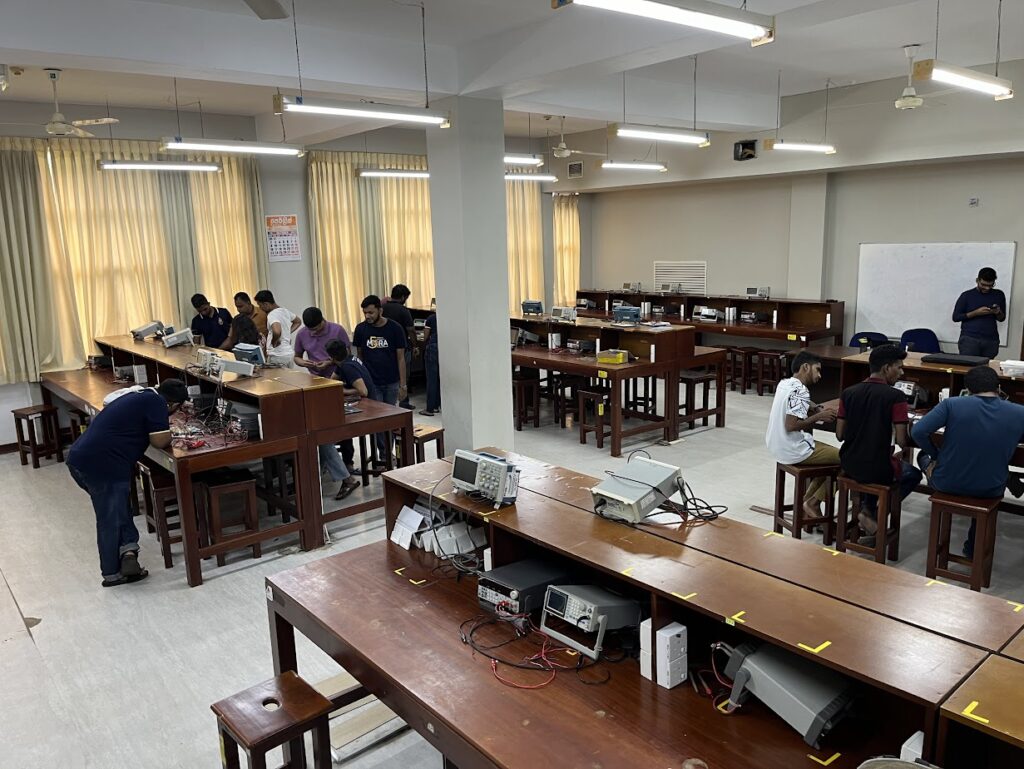
The University of Moratuwa has always been at the forefront of innovation and research in electronics, telecommunications, biomedical engineering, and allied disciplines in engineering. The success of the Department of Electronic and Telecommunication Engineering is a testament to the quality of education and research offered by the university.
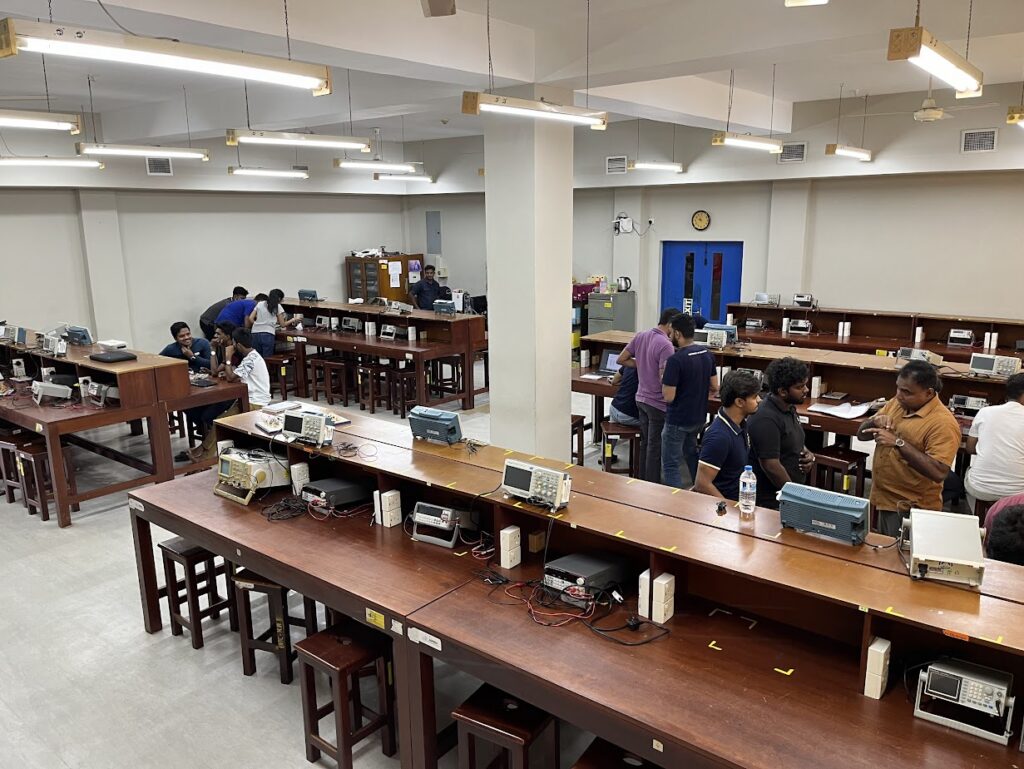
Picture source: https://www.tek.com/en/datasheet/digital-storage-oscilloscope-tbs1000c-series-datasheet
Read MoreDepartment of Electronic and Telecommunication Engineering of the University of Moratuwa Wins First Runners-up in RISC-V Processor Design & Verification Challenge 2023
The Department of Electronic and Telecommunication Engineering of the University of Moratuwa has added another feather to its cap by winning the **first runners-up** place in the RISC-V Processor Design & Verification Challenge held in Bangalore, India on September 18th and 19th, 2023¹.
The competition was organized by DVCon India and was aimed at promoting innovation and creativity in processor design and verification. The teams were required to design and verify a RISC-V processor that could meet the performance and power requirements of modern computing systems. The winning team from the Department of Electronic and Telecommunication Engineering, comprising Janindu Leelananda and Thishakya Bandara, demonstrated their technical prowess by developing a processor that could deliver high performance while consuming minimal power.
The University of Moratuwa has always been at the forefront of innovation and research in electronics, telecommunications, and allied disciplines in engineering. The success of the teams from the Department of Electronic and Telecommunication Engineering is a testament to the quality of education and research offered by the university².
Congratulations to Janindu Leelananda, Thishakya Bandara, and the entire team from the Department of Electronic and Telecommunication Engineering for their outstanding performance in the competition!
For more information about the contest, please visit [DVCon India’s website](https://dvcon-india.org/invite-for-global-design-contest/).
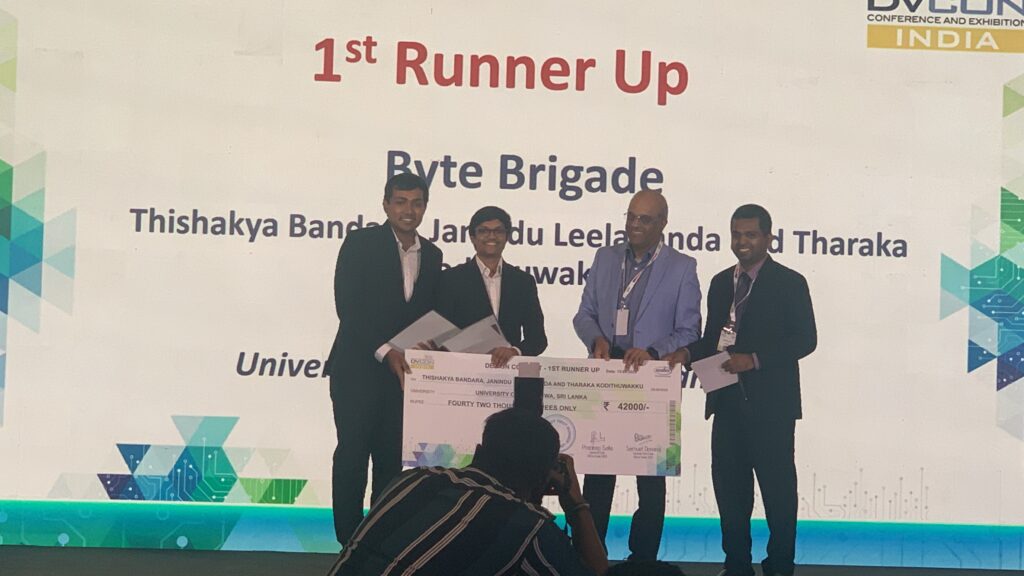
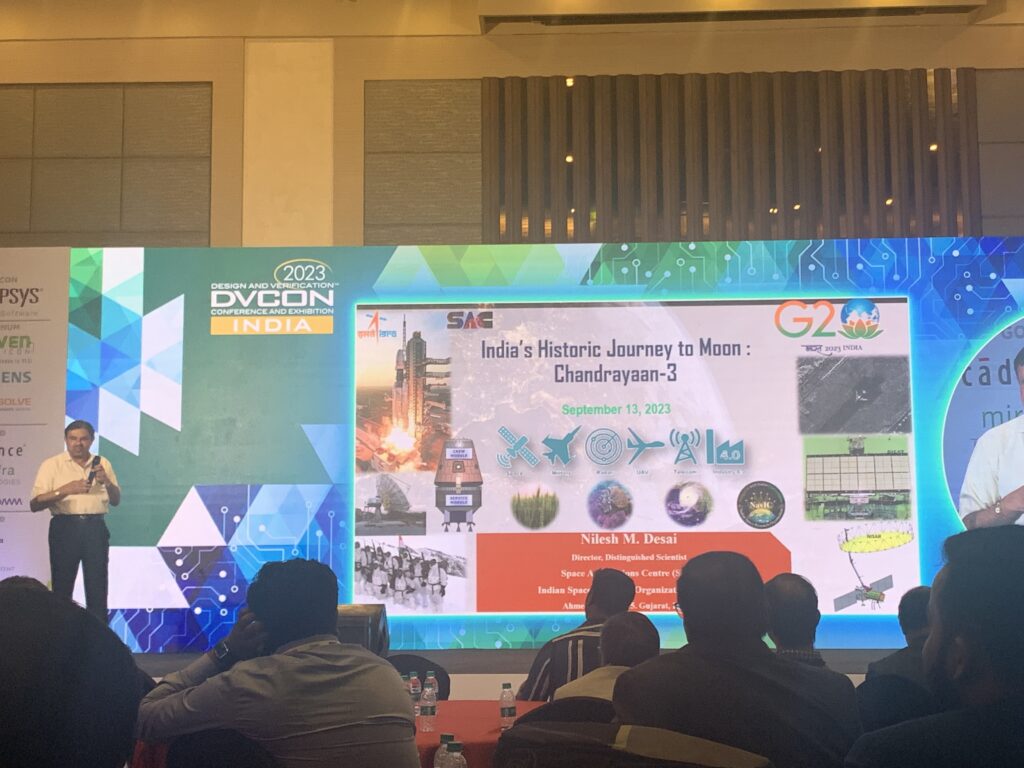
ENTC Open Day
The Department of Electronic and Telecommunication Engineering at the University of Moratuwa held an Open Day on January 17, 2023, to showcase the department’s facilities, projects, and laboratories to the new intake of students. The event was organized by the Electronic Club and saw a large number of students in attendance.
The Open Day began with a series of brief talks by the faculty members of the department, who provided an overview of the programs and opportunities available. The students were then given the opportunity to explore the department’s facilities and interact with faculty members and senior students.
The final year, third year, and second-year students actively participated in the event, organizing, demonstrating, and explaining various aspects of the department’s projects and facilities to the prospective students.
The Open Day showcased many projects, including final-year projects in computer vision, metaverse, augmented reality, unmanned aerial vehicles (UAVs), machine learning, software-defined radio, mobile robotics, electronics, and processor design. In addition, the second-semester projects were also demonstrated.
The prospective students were taken on a tour of the department’s various laboratories, including the biomedical engineering laboratory, analog electronics laboratory, digital electronics laboratory, telecommunication laboratory, computer vision laboratory, unmanned aerial vehicles laboratory, and K. K. Y. W. Perera Mobile Communications laboratory, among many other facilities.
The Open Day was well-received by the students, who appreciated the opportunity to experience the department’s facilities and projects first-hand. Many of the prospective students expressed their interest in pursuing a career in electronic and telecommunication engineering, noting the exciting and diverse range of projects and opportunities available within the field.
